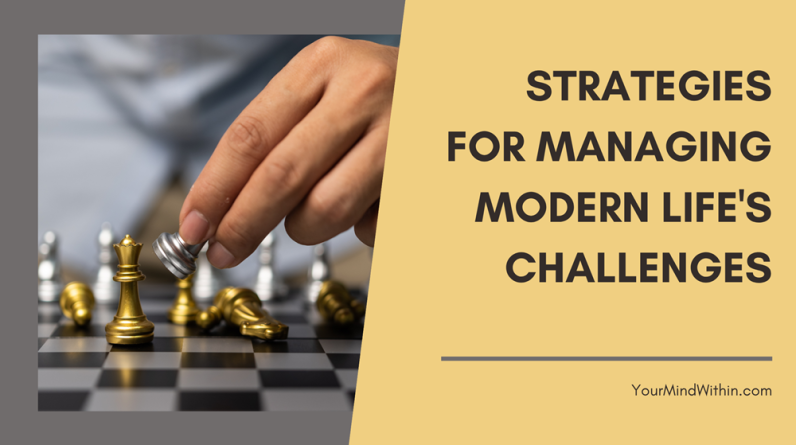

Crisis situations are no laughing matter. Not only do they cause an immense amount of panic and stress, but they can affect your physical health as well. Even folks who are talented at mitigating a crisis still feel the effects from them.
However, crisis situations are also an opportunity to gain valuable knowledge and insight. You can learn a lot from experiencing and handling a crisis. While the experience itself is often a major challenge, there is a silver lining to every crisis situation: You emerge from the other side with important lessons learned that can benefit you in future situations.
1. You learn more about your true strengths and where they lie.
Until you are the person at the forefront of a crisis situation, you don’t understand how it feels to be the “in charge” person of the moment. During a tense, stressful crisis, people may turn to you for guidance or advice. When you are suddenly responsible for mitigating a crisis, you may act in some new and unexpected ways.
Crisis situations put our bodies into “fight or flight” mode. Often, when you are the person who must step in to handle the crisis, the “flight” option is gone–with others depending on you and watching you, the option to run away is gone. When you decide to “fight,” or take action, the stress of a crisis can bring out some previously unknown talents and strengths as your mind and body work together to get you through the crisis.
2.You can discover where different areas of your daily life need improvements.
As you analyze a crisis once it’s ended, you can spot different areas of your daily life that need improvements. People often don’t recognize problem areas in their lives until they have to handle them during a stressful crisis situation–when you’re ultra stressed, those problem areas are extra obvious amid the chaos.
For example, if you’re having issues with your partner, they may be manageable until you’re both flung into a crisis. In the midst of all that extra stress, your arguments and fighting may become insufferable. After the crisis ends, you can begin to really evaluate the relationship and see where improvements need to be made.
3.You become more aware of yourself and others in your personal space.
A crisis situation sets people on edge. The stress of everything happening so suddenly is frightening and startling–often, a crisis arises with little to no warning.
After one of these “surprise” crises, you learn a valuable lesson in self-awareness. By being more aware of yourself and the other people around you, you can often detect changes and potential new crisis situations emerging.
4.You appreciate the little things in life a little bit more.
After a crisis rocks your world to its core, you learn to appreciate the little things in life more. Previous superficial desires (like having the fanciest car or buying the nicest house) fall to the wayside during a crisis. After the crisis ends, you’ll find yourself appreciating the smaller yet priceless aspects of your life, such as relationships.
5.You learn to treat people with a little extra empathy and kindness.
One of the best resources to have during a crisis is other people who care and want to help. After your crisis ends, you can carry along the memory of how nice it is to have a kind person on your side. Use that memory to remind yourself to be kind to others experiencing their own crises.
6.You develop an understanding of what’s truly most important in your life.
A crisis tends to shed a lot of light on life’s most important aspects. When you’re facing a crisis, a lot of life’s other little struggles and worries tend to fade away so you can focus your energy on handling the crisis. After a crisis subsides, consider what was most important during the hardest parts, and remember to treasure those parts of your life most.
7.You develop a keener sense of preparedness.
Future crisis situations can be avoided (or at the very least, softened) with some preparedness. When you exit a crisis where you weren’t prepared, you learn to become a “prepper,” or someone who plans ahead for any potential future issues.
8.You learn to spend more time caring for your mental health.
You are your own greatest asset. After handling a crisis situation, you learn a valuable lesson in mental health awareness. Caring for yourself and your mental health is important since you depend on yourself for so much, including getting yourself through life’s hardest situations. Use this lesson to spend time caring for your mental health–not only will you feel better, but you’ll also set yourself up for success in a future crisis situation.
9.You develop more of a “big picture” outlook on life.
After a crisis, reflect on what happened during the main event. Often, you’ll discover that a lot of different things were happening during the main crisis–it may even seem like lots of tiny crises were happening concurrently.
This experience, while unpleasant, can help you approach a future crisis with a “big picture” outlook, meaning you’re paying attention to multiple aspects of a situation at once.
Instead of focusing solely on the crisis, you’ll be able to maintain some attention on other important things without totally neglecting other aspects of your life during a crisis. Unfortunately, when something bad happens, other parts of life don’t stop–keeping this “big picture” awareness will help you maintain some balance.
10.You carry away a unique lesson that will help you handle (or even avoid) a similar crisis in the future.
Being in crisis mode is awful. No matter what the crisis was, you can exit each situation with a new lesson learned and take that knowledge forward with you. At the end of every crisis, evaluate the events.
Ask yourself what you experienced, what those experiences taught you, and how you can use that information in a future similar situation.








